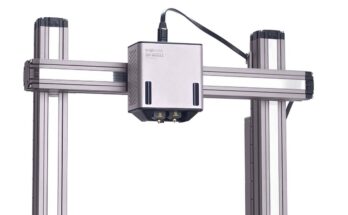In the realm of residential care, particularly in board and care homes, a personalized care plan is paramount to ensuring residents receive the individualized support they need. These care plans serve as roadmaps for caregivers and staff, outlining specific needs, preferences, and goals for each resident. Residents, board, and care homes can all benefit from improved health and quality of life when care programs are individualized to meet their specific needs. In this article, we’ll explore the importance of personalized care plans and provide tips for both residents and caregivers on how to create effective and meaningful plans.
Understanding Personalized Care Plans
Before delving into tips for creating personalized care plans, it’s essential to understand what they entail. A customized care plan is a comprehensive document that details an individual’s physical, emotional, social, and medical needs, as well as their preferences and goals. It is developed collaboratively between the resident, their family members or advocates, and the care team.
Every resident can rest assured that they will receive individualized attention that improves their quality of life thanks to a personalized care plan. These plans provide guidelines for caregivers and staff on how to assist residents with activities of daily living, medical care, social interactions, and recreational activities. Additionally, personalized care plans evolve over time as residents’ needs and preferences change, ensuring that care remains relevant and effective.
Tips For Board And Care Home Residents
1. Open Communication:
Residents should communicate openly with their care team about their needs, preferences, and goals. This includes discussing any medical conditions, dietary restrictions, mobility issues, or personal preferences that may impact their care.
2. Participate In Care Planning:
Residents should actively participate in the development of their personalized care plan. This may involve attending care planning meetings, providing input on their preferences and goals, and collaborating with their care team to create a plan that meets their needs.
3. Identify Preferences:
Residents should identify their preferences for daily routines, meal choices, social activities, and recreational pursuits. These preferences should be documented in the care plan to ensure that caregivers are aware of and can accommodate them.
4. Set Realistic Goals:
The resident and their care team should collaborate to establish attainable and practical objectives for the resident’s care plan. These goals may include improving mobility, managing chronic conditions, increasing social engagement, or maintaining independence.
5. Review And Revise:
Residents should regularly review and revise their care plan as needed. Changes in health status, preferences, or goals should be communicated to the care team so that the plan can be updated accordingly.
Tips For Caregivers And Staff
1. Build Rapport:
Caregivers should take the time to build rapport with residents and develop trusting relationships. In order to develop an efficient care plan, it is crucial that residents feel safe enough to communicate their wants and requirements.
2. Listen Actively:
Caregivers should actively listen to residents and their family members or advocates to understand their concerns, preferences, and goals. This information should be used to inform the development of the care plan.
3. Be Flexible:
Caregivers should be flexible and adaptable in their approach to care, recognizing that each resident is unique and may require different strategies to meet their needs. Flexibility allows caregivers to adjust the care plan as needed to accommodate changing circumstances.
4. Provide Choices:
Caregivers should provide residents with choices and options whenever possible. This may include choices related to meal times, activities, clothing, and daily routines. Providing choices empowers residents and promotes autonomy.
5. Collaborate With Residents:
Caregivers should collaborate with residents in the development and implementation of their care plan. This collaboration ensures that the plan is genuinely personalized and reflects the resident’s preferences and goals.
Conclusion
Finally, it is crucial to make a personalized care plan for each resident of a board and care facility so that they can receive the specific assistance they need to improve their quality of life.
In assisted living los angeles ca, seniors seeking personalized care and support can find tailored services in reputable assisted living communities. By following the tips outlined in this article, both residents and caregivers can work together to develop effective and meaningful care plans that promote well-being and independence. Personalized care plans not only improve the overall experience of residents but also contribute to a positive and supportive care environment within the board and care homes.



